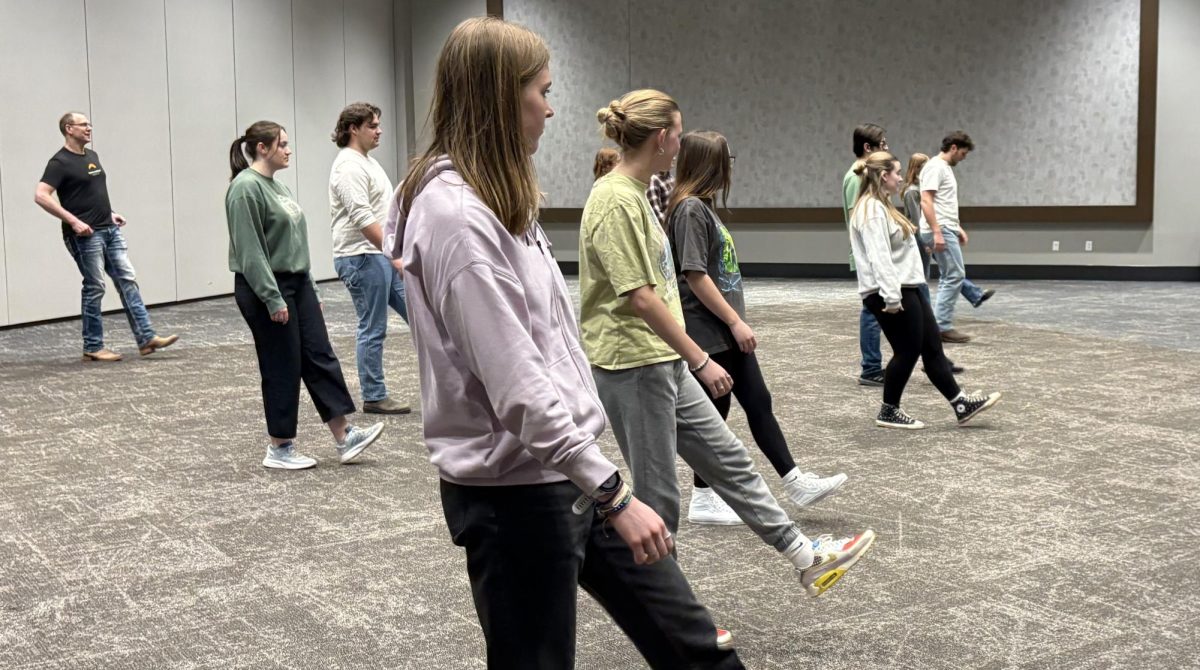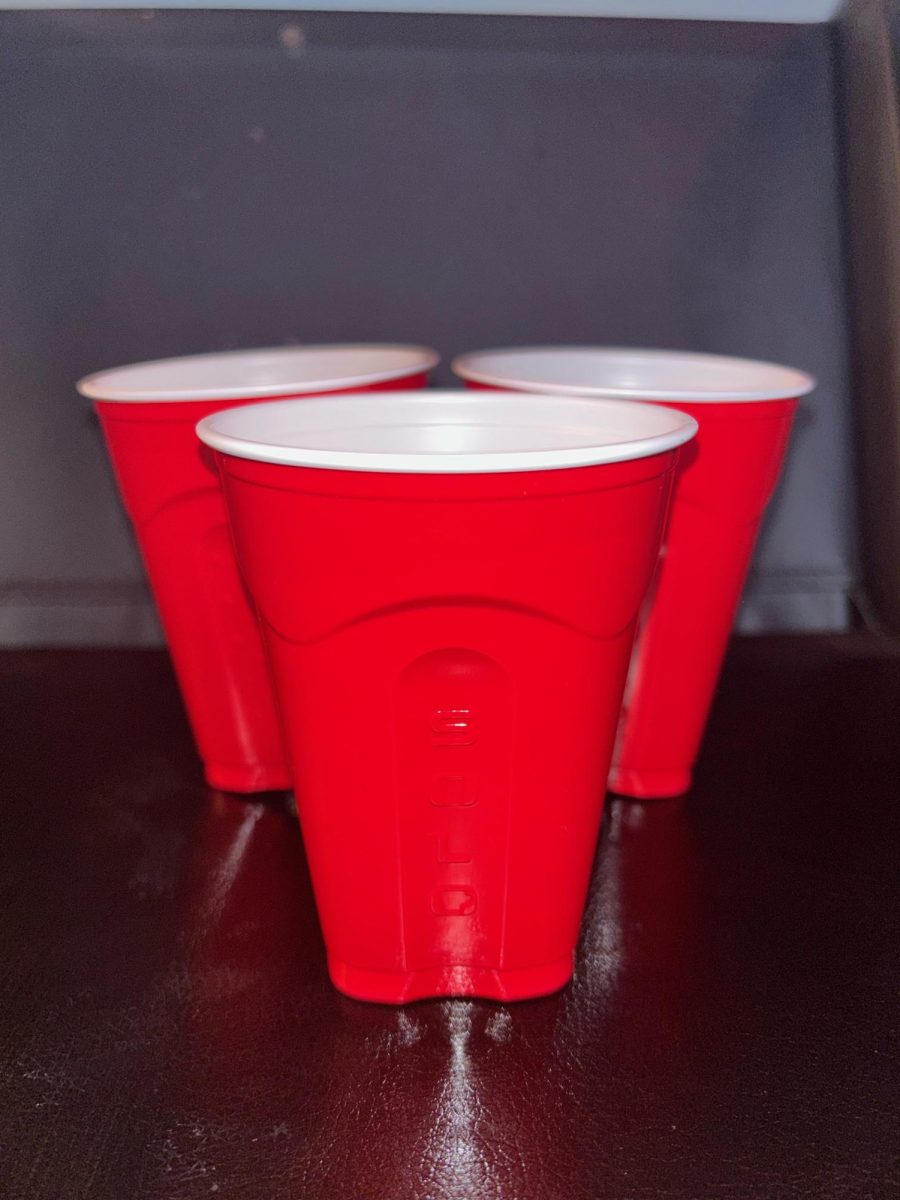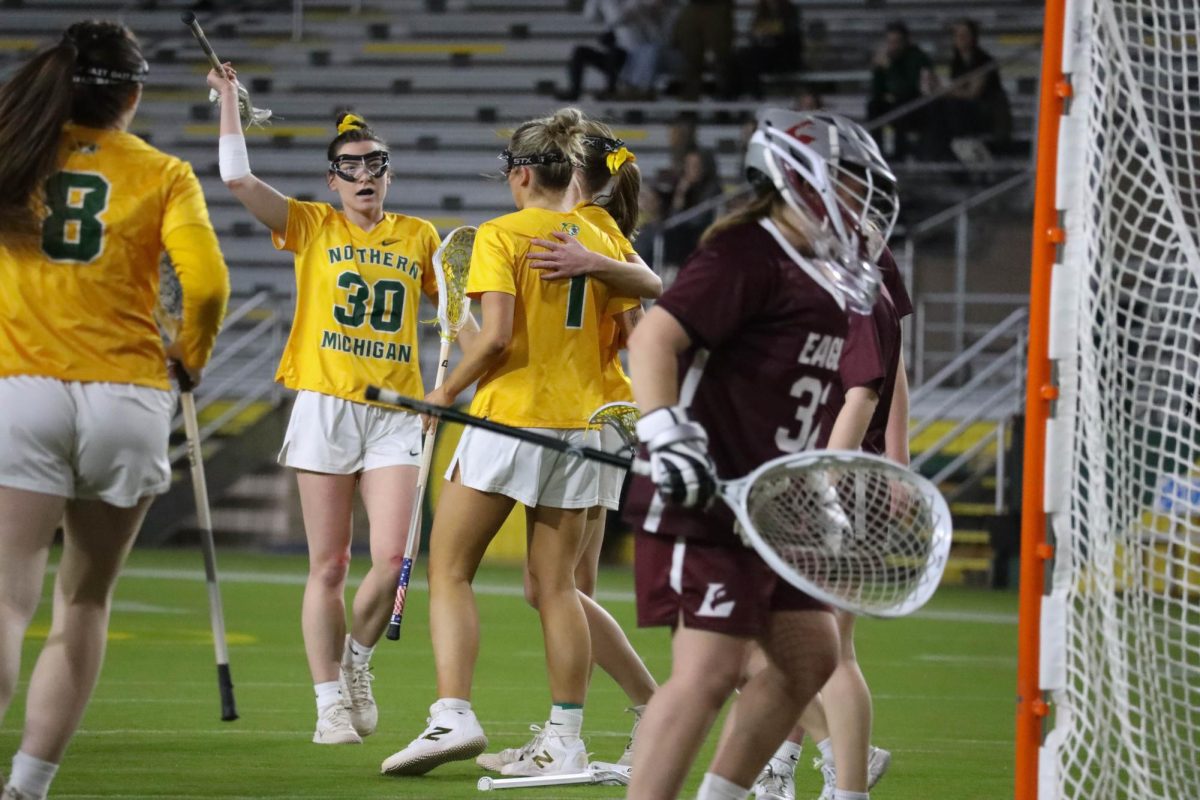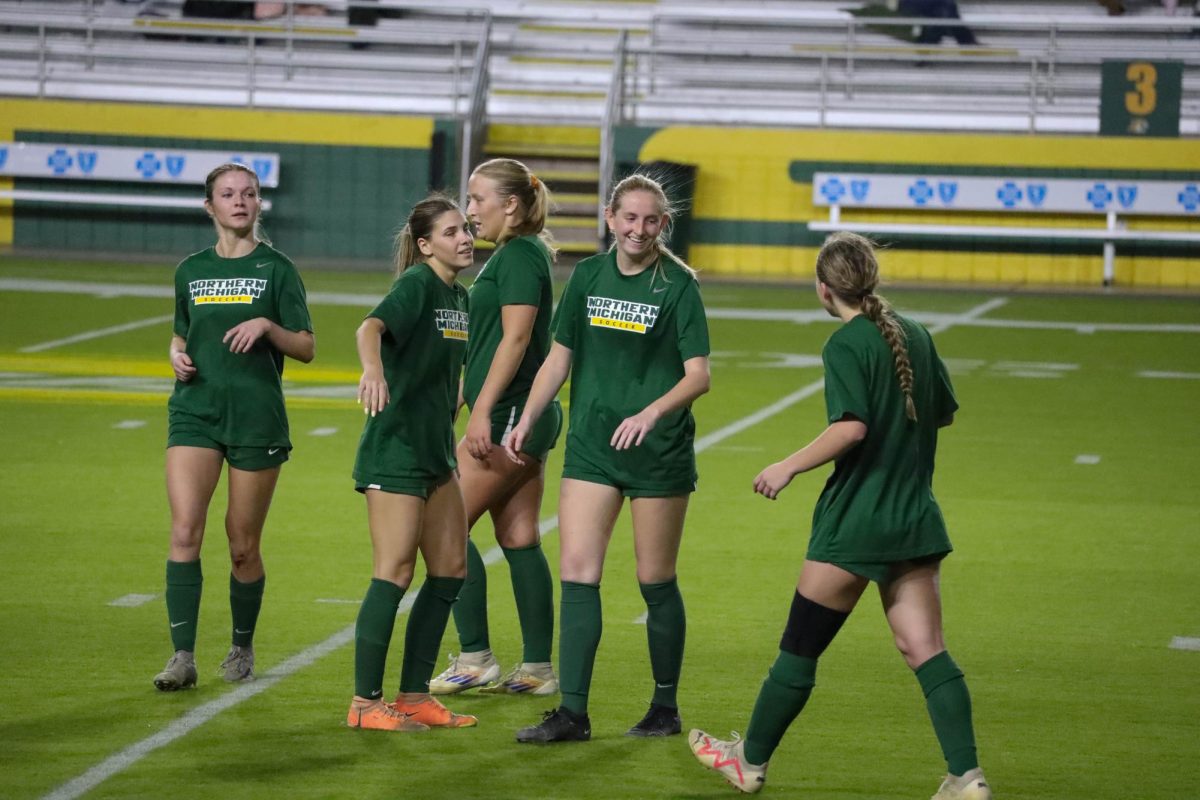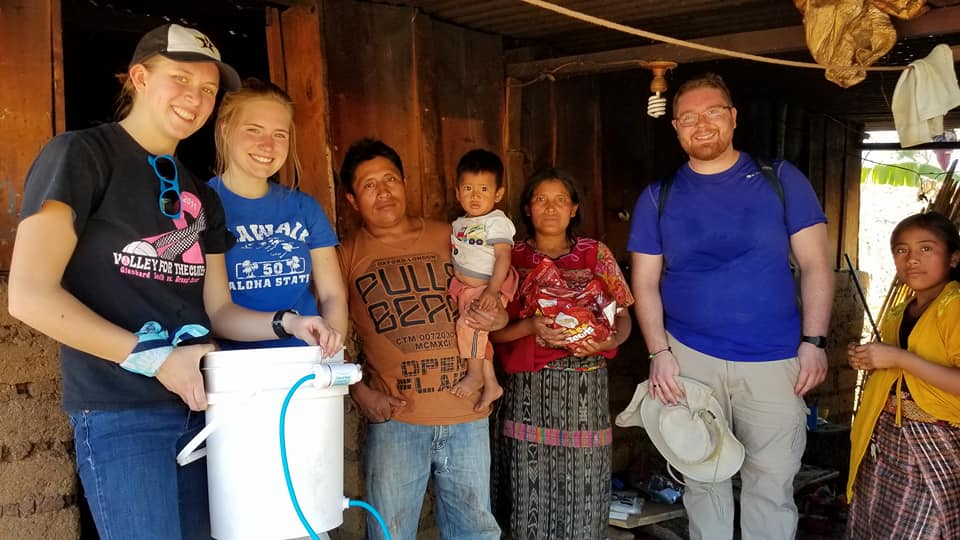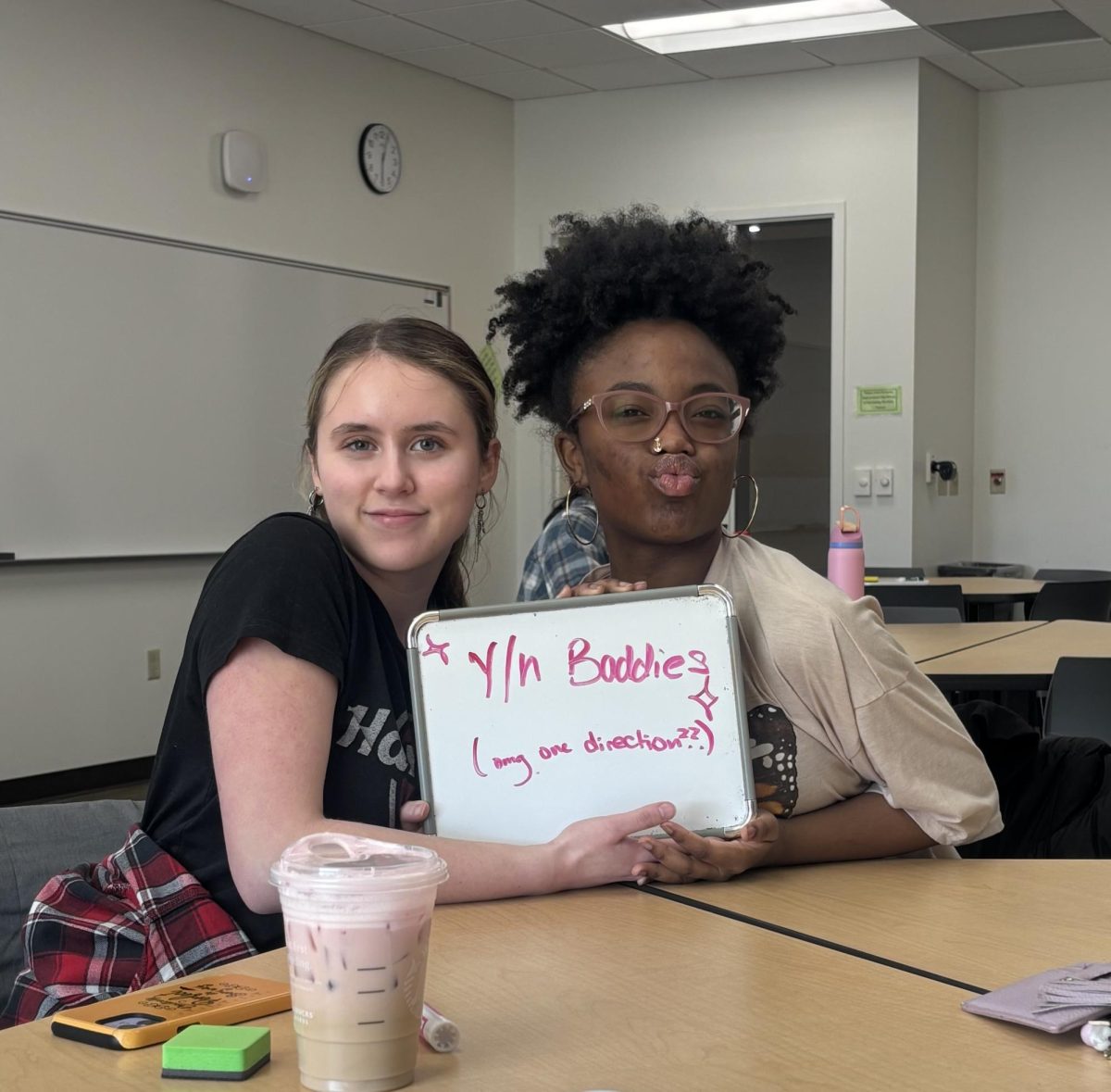Guatemala
The rural communities of Las Lomas, Guatemala, home of the indigenous Quiche people, are some of the most impoverished in the country. In the wake of a civil war, there are many homeless widows and their children. Furthermore, the local water is unsanitary, and drinking it gives people parasitic worms and other diseases.
It was to this community in need that this spring break NMU students Kyle Oldenkamp, Sarah Robinson and Holly Glover from the campus ministry Cru, as well as 11 members of Marquette’s Bethel Baptist Church traveled on a mission trip to help. They delivered water filters, built housing and shared the gospel, working with the missionary programs Send Me, Filters of Hope and the Jesus Film Project.
On March 3, they flew to Guatemala City, then rode vans through some 70 miles of dirt road, forest and mountain switchbacks to the town of Joyabaj, which would be their base of operations. From there, they would journey on day trips to visit rural villages with the help of translators to communicate across the three languages of English, Spanish and the native Quiche.
They gave locals filters that can be connected to large buckets and filter up to 150 gallons of water per day. They showed them how to use and care for the filters, then took the first sip to show that the water was truly clean enough to drink, said Robinson, who is a freshman pre-nursing major.
These 50 filters they donated were also a helpful metaphor for sharing the gospel, she said.
“All the dirty stuff in the water is like the sin in our lives and we need something to clean it out because we can’t clean it out on our own. Jesus is like the filter,” Robinson explained.
They also invited people to watch a showing that Wednesday of “The Jesus Film,” which is a movie about the life of Jesus Christ that the organization Jesus Film Project has translated into numerous languages worldwide—in this case, Quiche. More than 200 Quiche attended the film screening, and for most of them it was the first time they saw a movie in their own language, Robinson said. Many were “awestruck” and silent as they focused on the film and its story.
After the movie, there was a moment of group prayer, in which Robinson had the unforgettable experience of praying for a woman who only spoke Quiche, a language Robinson did not.
“The woman I prayed for was crying at the end, and though she didn’t understand what I was saying, she understood what I meant in my prayer. Which was a cool thing to witness,” Robinson said, adding that God’s love transcends language barriers.
The group also helped on the construction of some four-plex apartments which will house impoverished Quiche widows and their children. There was already a foundation and walls started by other mission teams, so they added brick, mortar and roofing tiles, keeping their morale up with good humor, despite the hot sun, Robinson said. The building project will be completed someday by others.
“It was a stressful week, trying physically, mentally, spiritually, but I wouldn’t change it for the world. It was a great experience to have,” she said.
For Oldenkamp, a senior nursing major, this was his first time in Guatemala, and he agreed that it was eye-opening to see the impoverished conditions in Las Lomas. It inspired in him a desire to continue helping the Quiche people and others in need, he said.
“They were so hungry to hear the gospel, so thankful that we came,” Oldenkamp explained. “Being able to see how hungry people are to hear the word of God and how there are these pockets of people that don’t have… access to clean water, [enough] food, I feel like it’s my calling. I would go back in a heartbeat,” he said.
They returned to Marquette about 1 a.m. Monday morning, March 12, in time to get a few hours of much-needed rest before classes began.
Mexico
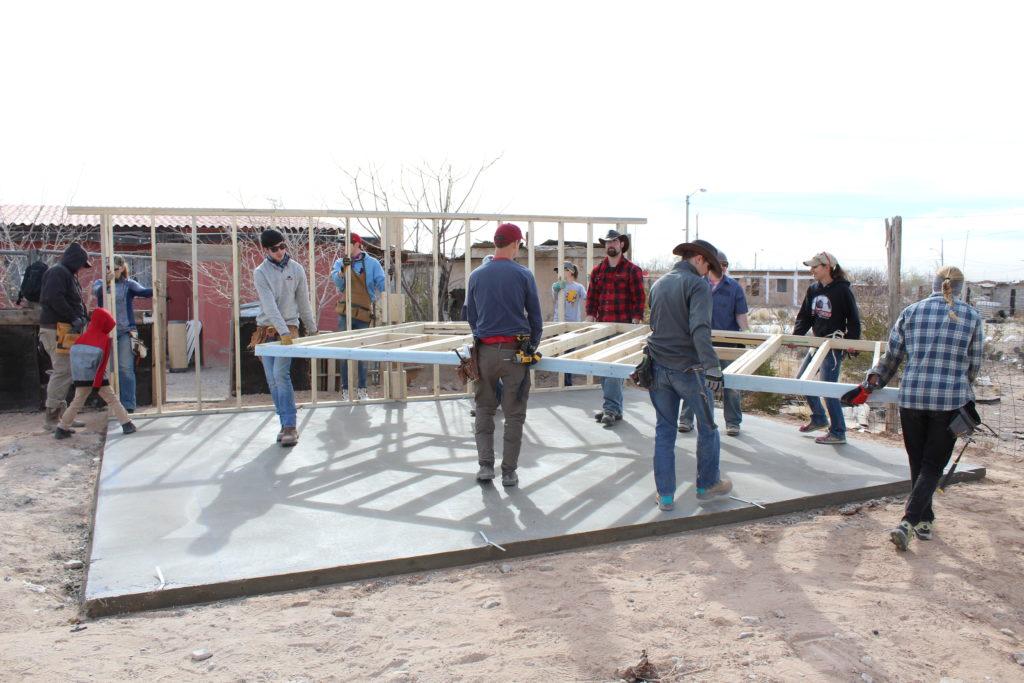
Ciudad Juárez, Mexico is a sprawling urban area on the U.S. border, separated from El Paso by a guarded fence. Infamous for its years of drug wars and violence—Juárez was once called “the world’s most dangerous city” by National Geographic—and although crime rates aren’t as high as years past, the city still isn’t the safest place. Moreover, there are many impoverished neighborhoods where water is scarce and pricy, trash litters the desert plants and where stray dogs roam. There, communities band together to survive.
This spring break from March 2 to 11, eight NMU students from His House Christian Fellowship teamed up with 22 students from Ferris State University (FSU) to drive over 1,700 miles, one way, to Juárez on a mission trip to build two houses for homeless families.
“It’s something tangible, that’s going to keep them safe and warm,” said Mara Smith, an NMU sophomore elementary education major, for whom this was her second mission trip. “I like serving people and this trip is a perfect opportunity to do that and to have fun. The soreness and tiredness, I can deal with that. It’s definitely worth it.”
Giving these houses to the families mirrors the gift of God’s grace, Smith explained.
This mission trip was through the nonprofit Casas por Cristo (CPC), which means “Houses for Christ.” This missionary organization connects volunteer build teams with families in need in Mexico, Guatemala and the Dominican Republic. Founded in 1993, CPC and its volunteers have built over 5,300 houses. Each house costs $6,900, which is paid for by the volunteers. This was the fourth year that NMU’s His House participated.
The Wildcats and FSU students split into groups to build the two houses. In a mere three days, the worksites went from empty lots to concrete foundations, to stucco walls, tin roofs and drywall. On the third day, the families got the keys to their new homes.
For Megan Emily, an NMU graduate student in creative writing, this was her first time in Mexico, but thankfully she knew enough Spanish to converse and get to know the family she built for. Although she was nervous at first, connecting with them was a goal of hers, she said.
On their last night in the city, they went to a mountain over-look, from which they could see the twinkling lights of El Paso, Juárez and the snaking border fence that divides them. It became an emotional moment for Emily, and in her mind, the
differences between people disappeared, she said. “Unless you knew which lights belonged to the border fence, you couldn’t tell which was El Paso, which was Juárez,” Emily explained. “I was crying, thinking, ‘This is what God sees, just one city.’ He doesn’t care that we’ve put this line down the middle. We’re all one. In God’s eyes, we’re his people first.”
That Thursday, the day before they started the long drive back to Michigan, the group also spent time at the CPC headquarters in El Paso, packing supply crates for the other 350 houses CPC plans to build this year for families in need.






